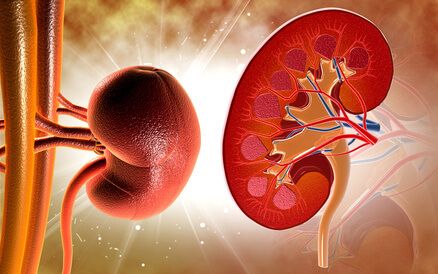Administrating Recombinant Human C1-Esterase-Inhibitor (rhC1INH) before coronary angiography might mitigate contrast induced kidney injury. In addition, it shows a favorable safety profile in populations with multiple comorbidities.

The contrast material used in all our diagnostic tests and therapeutic procedures causes tubular cytotoxicity and ischemia/reperfusion injury. rhC1INH had been effective at mitigating this mechanism in experimental models and was therefore ready to be tested against placebo in humans.
This study included 77 patients with chronic kidney failure blindly randomized to 50 UI/kg rhC1INH vs placebo in elective angiography procedures.
Primary end point was peak change of urinary neutrophil gelatinase-associated lipocalin within 48 h, a specific marker of kidney injury.
Read also: ST-Segment Elevation Myocardial Infarction in the Time of COVID-19.
Median peak change of urinary neutrophil gelatinase-associated lipocalin was 4.7 ng/ml for the active branch vs. 22.5 ng/ml for the placebo branch (p=0.038) in the per-protocol population, but not in the modified intention-to-treat analysis or in patients treated with PCI after the angiography.
The incidence of contrast induced kidney injury as per the classic definition was comparable between both groups. Adverse events at 3 months were also similar.
Conclusion
Prior administration of the recombinant Human C1-Esterase-Inhibitor could mitigate contrast induced kidney injury. And even though, for now, this has only been shown for a surrogate marker of kidney injury, the safety feature of this new molecule is now clear.
Original Title: A Randomized Trial of Recombinant Human C1-Esterase-Inhibitor in the Prevention of Contrast-Induced Kidney Injury.
Reference: Anneza Panagiotou et al. J Am Coll Cardiol Intv 2020, article in press.
Subscribe to our weekly newsletter
Get the latest scientific articles on interventional cardiology
We are interested in your opinion. Please, leave your comments, thoughts, questions, etc., below. They will be most welcome.





